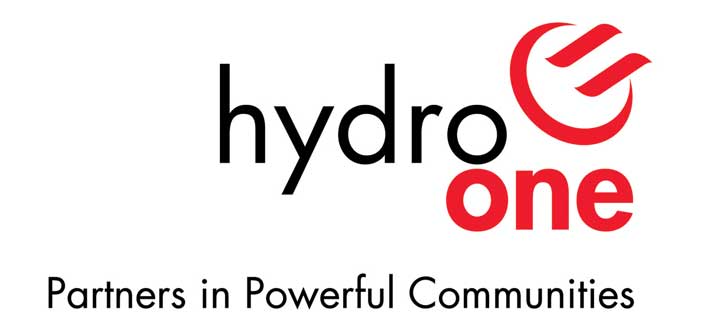MINDEMOYA—The Manitoulin Municipal Association (MMA) is calling on Hydro One officials to ‘come out of the closet’ and attend a future meeting to explain its billing process and to hear concerns raised by the group’s members.
“I compared my rates to my neighbours on both sides of me; when they (Hydro One) talk about delivery charges, what are they saying and how do they arrive at any of the charges they bill customers for?” asked Central Manitoulin Councillor Adam McDonald at an MMA meeting last week. “Maybe if they could give us a reasonable explanation on their billing process we would be able to understand. I know for instance my barn is billed way different than my house. They need to tell us why and how they bill (customers), I just feel Hydro One should come out of the closet and give us a reasonable explanation of how they bill.”
“I had one bill recently that was for one cent,” said Mr. McDonald. “Just imagine the cost to produce it.”
Brian Parker, a Billings Township councillor, told the meeting, “I have a smart metre that has not worked since last April (2013).”
Mr. Parker said he had recently taken part in a teleconference call involving Hydro One billing with about 5,000 people who have concerns with the hydro billing process taking part. “We were told that anyone who didn’t have the chance to bring up their concerns would be called within two days. It’s been two and-a-half months and I haven’t received a call as of yet (from Hydro One).”
Mr. Parker provided a comparison of rates of someone he knows that lives in Burlington and what they have paid over 61 days as compared to his rates for 29 days at his residence in Kagawong last fall. While Burlington hydro delivery charges are $65.11, or $32.55 per month, his delivery was $88.95 in one month; a regulator charge of $3.50 per month in Burlington was billed, while he was charged $6.08; the debt retirement charge in Burlington was $3.91 per month and his debt retirement charge was $6.68.
The HST costs in Burlington were $11.38 per month while his charges were $24.15 per month. The Hydro One usage charge in Burlington was 1,118 kilowatts per hour, as compared to his 954.24 kilowatt hours over 29 days. “The total for Burlington for 61 days was $178.05, while my total cost was for 29 days of $188.95,” said Mr. Parker.
Mr. Parker had also brought forward a resolution passed at a Billings council meeting of April 22, that basically notes the Ontario Provincial Police (OPP) are proposing a new billing model for charging municipalities for policing services starting in 2015. These costs are based on a division of all municipalities into the OPP total operational costs as proportioned equally across Ontario to each household as determined by Municipal Property Assessment Corporation (MPAC) records. “The province has determined that this better reflects a fairer representation of actual costs per household across the province. And if the current model does take effect based on a perceived fairer disbursements of costs relative to the OPP operations across Ontario, and if this model is truly based on this fact, then all other common commodities delivered across Ontario such as, but not limited to hydro, fuel oil/propane, gasoline/diesel, should be provided with the same methodology and equalized cost across Ontario,” the resolution reads in part. “I just wonder if we can get some support to move this forward up the pipe,” said Mr. Parker.
“Are they (Hydro One) charging a different rate per kilowatt (based on where a customer lives in the province)?” asked Jack Clark.
“This issue of hydro costs is real important to municipalities,” said Gerry Strong. “We have seniors that are paying $800 to $1,000 a month for hydro and are on a fixed income. One senior in our municipality was telling me she can’t afford to pay hydro, pay for food and pay municipal taxes. You know what she isn’t going to pay? Municipal taxes. The government knows that something has to be done.”
“I agree we should get someone here from Hydro One to explain in detail their billing methods,” said Mr. Noland.
“Our municipality (NEMI) has sent out several letters to hydro on our concerns,” said Northeast Town Mayor Al MacNevin. “I understand it is all determined by usage. As for the policing costs, the MMA approved the motion to call on the province to take over the costs of policing for municipalities with populations of 5,000 or less. I think it would be difficult to have a motion to have the same type of billing model province-wide for paying fuel, oil, hydro and gas. I don’t see how these other things can be billed using the same type of OPP billing model for all municipalities.”
“I agree with Al that the hydro issue is different than policing and they should be separate issues,” said one MMA member.
“It appears the general consensus of everyone here is that hydro and policing should remain separate,” said Mr. McDonald. “I’d like to make a motion to request Hydro One representatives with billing knowledge to attend our next meeting. I’m very interested to see if they will even show up.”
The MMA passed a motion for Hydro One representatives to attend a meeting to detail the billing model it uses.
Earlier this week, the Canadian Press reported that Ontario’s Ombudsman, Andre Marin said Hydro One’s billing practices have garnered an unprecedented number of complaints to his office. He said he has received 7,900 complaints about the provincial utility and the number keeps increasing. His annual report says it is the most complaints his office has ever received about a single government organization.





